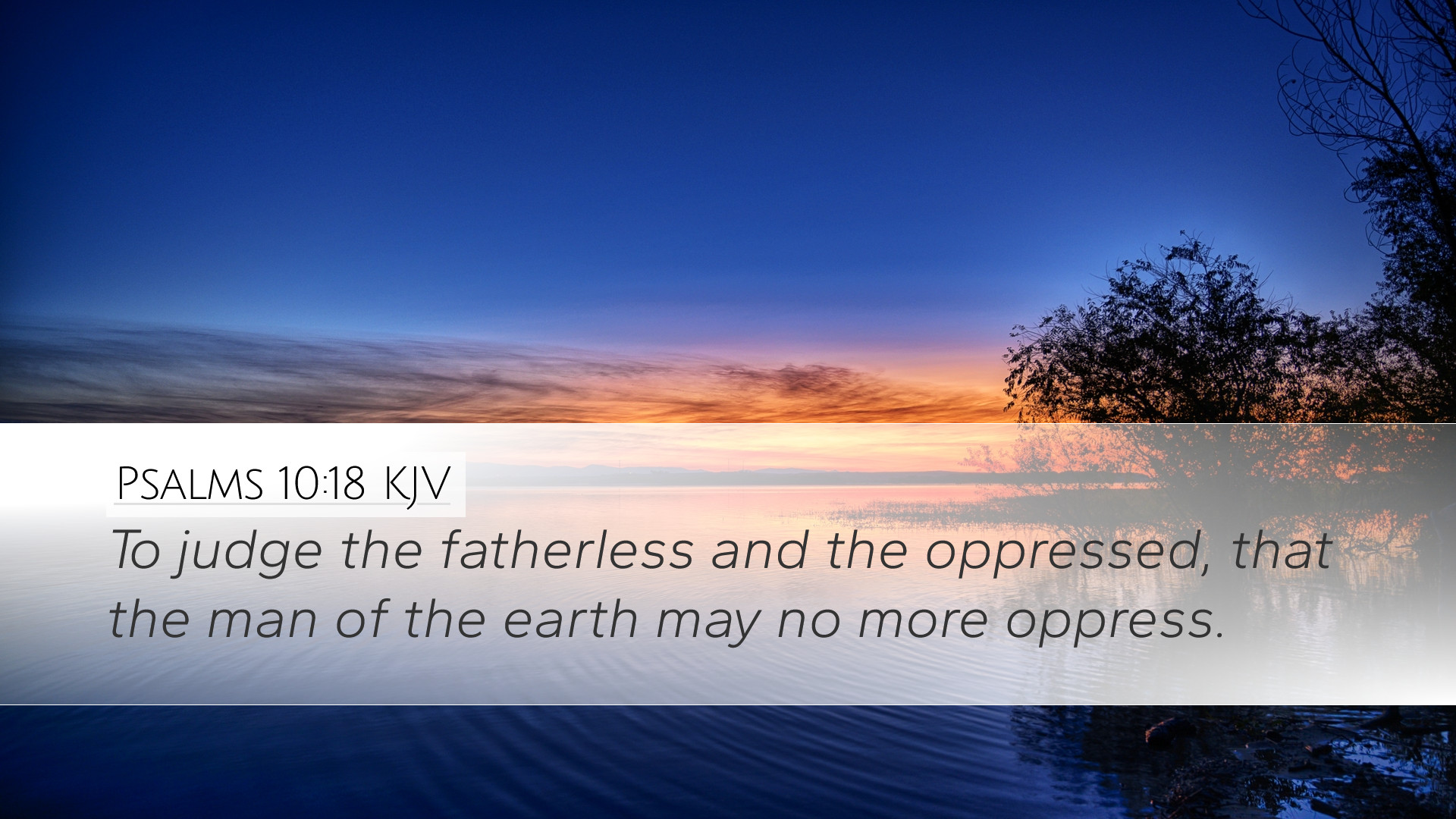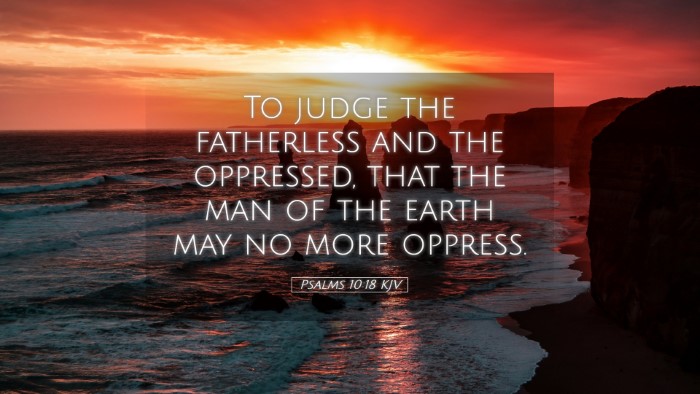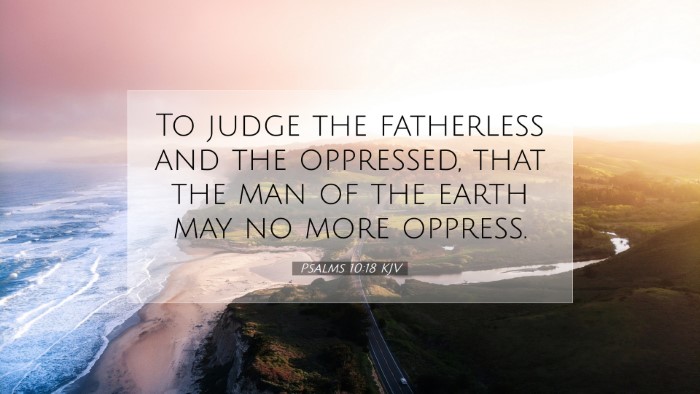Psalms 10:18 Commentary
Bible Verse: "To judge the fatherless and the oppressed, that the man of the earth may no more oppress." (Psalms 10:18, KJV)
Introduction
This verse from the Book of Psalms encapsulates a profound plea for divine justice and the assurance of deliverance for the vulnerable. It speaks to the heart of humanity's struggle against oppression and inequity. By exploring the commentary provided by esteemed theologians like Matthew Henry, Albert Barnes, and Adam Clarke, we unveil rich insights relevant for pastors, students, theologians, and Bible scholars.
Contextual Analysis
The context of Psalm 10 is critical for understanding verse 18. This psalm expresses the psalmist's lament over the apparent prosperity of the wicked and the suffering of the righteous. It highlights God's seeming distance in the face of injustice. Verse 18 serves as a powerful conclusion to this lament, establishing a tone of hope and expectation for divine intervention.
Matthew Henry's Perspective
Judicial Concern: Henry emphasizes that this verse signifies God's role as a judge for those who lack representation, such as the fatherless and the oppressed. He points out that God's judgment is not merely punitive but restorative, aimed at rectifying wrongs and lifting the downtrodden.
Divine Intervention: Henry notes the importance of trusting that God will intervene in human affairs, particularly for the marginalized. He observes that God's judgment serves as a countermeasure against those who exploit the weak. This reveals God's close attention to social justice.
Albert Barnes' Commentary
Power of the Oppressor: Barnes discusses the characteristics of the oppressor in this context, labeling them as those who take advantage of the powerless. He underscores the notion that while earthly power may lead to oppression, God's judgment can dismantle such structures of injustice.
Hope for the Helpless: Building on this, Barnes stresses that the assurance of divine judgment is a source of hope for the oppressed. He believes this verse serves as an encouragement for those who face injustices, reminding them that God is aware of their suffering and will act against their oppressors.
Adam Clarke's Insights
Societal Implications: Clarke elaborates on the societal responsibilities of believers. He argues that as God works to bring about justice, it is also the duty of the faithful to champion the rights of the oppressed. This duality highlights the partnership between divine and human in the quest for justice.
Eradication of Oppression: Clarke expresses that the phrase "that the man of the earth may no more oppress" reflects a radical hope for a transformed society. He interprets this as a prophetic vision where justice reigns and exploitation is abolished, aligning well with the overall Biblical narrative of restoration.
Theological Reflections
This verse serves as a theological declaration concerning the nature of God as a just judge. It affirms the belief that God is aware of human suffering and is engaged actively in the affairs of the world. The assurance that the fatherless and oppressed will receive justice speaks to the compassionate character of God.
- Justice and Mercy: The balance between justice and mercy is crucial, as it highlights God's character and His intentions towards humanity.
- Active Participation: Believers are called to reflect God's justice in their interactions with others, advocating for the oppressed and holding to the belief that God supports their cause.
Applications for Ministry
This verse is rich in application for ministry and personal faith. It invites pastors and church leaders to take an active stance against injustice and not to overlook the vulnerable members of society. Here are some practical applications:
- Advocacy for Justice: Churches should engage in social justice ministries, advocating for policies that protect the rights of the marginalized.
- Support Structures: Establish support systems within the church for orphans, single parents, and those facing oppression.
- Teaching and Preaching: Incorporate themes of justice and mercy into sermons, encouraging congregants to develop a heart for the oppressed.
Conclusion
Psalms 10:18 encapsulates a profound call for justice and indicates God's role as the defender of the oppressed. By drawing insights from notable commentaries, we appreciate the depth of this verse in its historical, theological, and practical implications. It serves as a reminder that while oppression exists, God’s commitment to justice and mercy compels believers to act on behalf of those who cannot defend themselves.


